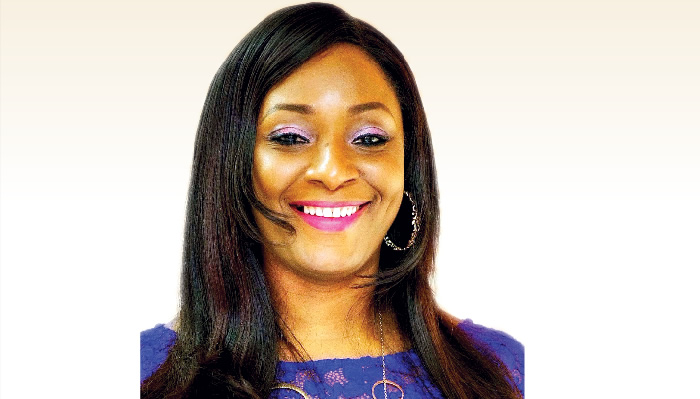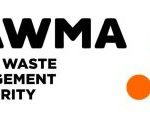
Dr Kehinde Nwani is the founder and Chief Executive Officer of Meadow Hall Group. She is also the CEO, Lagos Preparatory and Secondary School, and a member of the Forbes Business Council. She tells BLESSING ENENAITE about her career and other issues
What inspired you to switch from law to education?
I would say very simply, purpose and passion. I had always wanted to be a teacher but I got influenced by the way society looked down on the profession. Though I went to the university to study Education, I was too happy to change to Law in my second year. I wanted a course that was respectable. One that I thought would make me rich, but one that I found out after studying that I was not so passionate about. I enjoyed studying Law but I did not enjoy practising law. After practising for 14 years, I decided to follow my passion, which is education.
I liken my story to that of Jonah in the Bible, whom God instructed to go to Nineveh and he decided to run to Tarshish. But eventually, God guided him back to do what He had instructed him to do. I practised law for a while but finally followed my heart and came into the field of education, which I believe is my calling.
When one finds purpose, passion will follow; and when one is passionate about something, one cannot stop learning. I just kept learning until I got my PhD in Education. And even then, I haven’t stopped learning. Continuous professional development is key as it will drive one’s creativity. When one is creative and innovative, it keeps one ahead of the pack and enables one to stand out.
The education sector is filled with many practitioners. What distinguishes your institution from others?
Our holistic approach to education distinguishes us from others and by this, I mean that we focus on developing the multiple intelligences of our children. This is in line with a theory proffered by Howard Gardner (an American cognitive psychologist and author), which explains that children are intelligent in various ways that cannot be measured simply by an Intelligent Quotient test.
We are mindful of the fact that children are unique and expectations cannot always be identical. Also, we are intentionally inclusive in our approach, and create different platforms including academics, sports, performing arts, languages and so on for all our children to thrive and excel.
We embrace and are very deliberate about incorporating socio-emotional learning to foster our community’s self-awareness, ability to self-manage, social awareness and the development of relationship and responsible decision-making skills.
Also, we are ahead in the use of technology. We have attained the status of being an HP Idea school and an Oracle academy. The majority of our teachers are Microsoft certified, and our students are embarking on the same route of being Microsoft certified. The use of Virtual Reality is prevalent in our lessons, and we have migrated from smart boards to smart TVs. With this focus on technology, our students have created a learning app from scratch.
Your organisation has several subsidiaries. Tell us about them.
We have a number of subsidiaries making great impact in the education sector in Nigeria. Aside from our flagship– Meadow Hall School— we have a not-for-profit arm, through which we partner with individuals, as well as public and private organisations to implement sustainable initiatives, projects and programmes that support students, teachers, schools and communities.
Since 2009, we have worked continuously to provide support to underprivileged children through various initiatives, such as the School Adoption Programme, Inspirational Educator Awards and our Education Convention. Our focus remains the Nigerian child and we aim to advance their educational outcomes by enhancing teaching quality.
We also equip teachers through our education consulting firm, which is dedicated to raising the standard and quality of education in Nigeria. We have over 12 years of experience in teacher professional development, school set-up and organisation, as well as in general business/education management consulting.
In addition, we have an edutainment company designed to inspire and nurture creativity in children, as well as create avenues where they can have fun while still developing their God-given talents. We offer a diverse mix of co-curricular activities, such as gymnastics, football, skating, swimming, public speaking, tennis, and drone club. We are also big on international learning trips, which give the students the opportunity to learn while experiencing a new culture and environment. This year, our students will be participating in the Manchester City Football Camp and the Future Leaders Programme at King’s College London.
What are the challenges you face as a school owner?
A school owner in this part of the world faces a lot. It actually takes seeing what one does as a calling in order to keep going and not give up. It is not a walk in the park to run a school. There are several challenges.
Getting one’s staff to buy into one’s vision can be challenging. It entails getting people to change their mindset and practices, and to adopt a new one, which can be quite tough but to the glory of God, it is something I have done over the years, though it takes time for people to buy into one’s vision. It is one of the marks of a true leader – being able to influence people to believe in one’s vision. We are also very careful when we recruit staff. We try to employ people who are a good fit for our company and who share our values.
Then, after employing the right people and meticulously training them, one sometimes loses them, as they join the ‘japa’ train and move abroad in search of greener pastures. This can be very painful. These are people one has poured oneself into, and then, they have to leave, often with very little notice. Sometimes, it might be their spouses leaving and they have no choice but to go along. This is a huge challenge indeed, and the workforce is changing rapidly, but again, we are not fazed. For us, we have risen above this problem and found excellent ways to ensure our children continue to get the very best, and our standards remain high, as we adopt other strategies, including the use of technology, such as Artificial Intelligence.
Another challenge is the general atmosphere in the country, which is not so conducive to businesses. Help from the government is minimal or non-existent. We are our own government, because we provide electricity, water and everything else and still pay taxes— even as educational institutions. I feel private (sector) education should be seen in a positive light and private schools (should be) seen as partners helping the government in reaching more students and contributing to the advancement of the country.
More appreciation should be shown for the role we play, and our contribution to society should not be viewed as inconsequential. Government should give incentives and developmental grants to private schools, and exempt them from some form of taxes.
Negligence is becoming a recurring issue in some schools in the country. What are the special measures your school takes to ensure the safety of students?
We have two main priorities in ensuring the safety of students in our school—safer recruitment and safe premises. We have carefully crafted our child protection and safeguarding policy, and this informs our practices in this very important area.
This policy guides us into being proactive, regarding the safety of our students. We cannot afford to build a culture of being reactive, looking for solutions after terrible occurrences, when we could have avoided them.
Safer recruitment means that we are intentional about those we recruit to work with our students, and how we go about it. We carry out police checks, insist on references from previous employers and use application forms as opposed to the use of curriculum vitae, which is now considered as being unsafe. With an application form, we can tease out pertinent information, which might not be available in a CV created by the applicant. We are intentional about not recruiting any adult that will put our students’ lives, health and safety at risk.
During post-recruitment, our teachers go through our Safeguarding and Child Protection training before they are given access to our students, either virtually or physically. This training is taken by every member of staff once every term.
Safe premises means we have put some structures and systems in place to make our physical premises extremely difficult to penetrate. Our ‘drop-off’ and ‘pick-up’ procedures require a high level of physical presence of adults, and we have made that available. We have also established a family identification card, without which no one can access or leave our premises with any child. In addition, we don’t leave any child unattended at any time.
Our health personnel are qualified matrons who give expert medical care to our students as required. Our healing bay is adequately and appropriately resourced.
Furthermore, policies such as anti-bullying, behaviour and discipline, health and safety, first-aid, and whistle blowing. Above all, it is important to remain prayerful.
It has been said that lower and middle-income schools are better at upholding discipline than high-income schools. What do you have to say concerning this?
I think discipline is relative and cannot be judged by the immediate outcomes alone. Some schools are particularly rigid, especially middle and lower-income schools, and use harsh methods, such as corporal punishment to manage pupils’ behaviour. Such students might undoubtedly demonstrate conformity with expectations, but they may turn disobedient outside of school settings, exhibiting rudeness, aggression and occasionally, violence. Students who choose to conduct themselves responsibly, regardless of circumstances, demonstrate true discipline.
These students exhibit self-awareness and the ability to self-direct their behaviour as needed. The benefit of this internal discipline is that students conduct themselves well, even when there are no regulations, since it comes naturally to them.
This form of behaviour management is more common in high-income schools and originates from the 21st century. However, because they must continually share expectations, set an example of good behaviour, and adhere to established procedures for rewards and consequences, some teachers find this strategy to be more labourious to apply. The high-income school behaviour system fails and indiscipline is visible when there are gaps in this model.
Also, some teachers in high-income schools find it difficult to adopt this new model of behaviour management, and would rather ignore bad behaviour from students. As a result, there is an increase in indiscipline in elite schools.
Teachers might find it intimidating working in high-income schools, because many of the parents are powerful and wealthy, especially if they are involved in the administration of the schools. Teachers would rather adopt a ‘self-protection’ strategy of ignoring disruptive behaviours in order to keep their jobs. As a result, indiscipline persists in some of these high-income schools.
Lastly, because of their busy schedules, parents at high-income schools spend less time with their children. Since the school is really an extension of many families, it naturally becomes a reservoir of incorrect and unregulated behaviours. When the administration cannot handle the high demands of dealing with disruptive behaviour in the face of the strict academic requirements, behaviour management fails in such schools.
Using the cane on students is one feature in schools that has been frowned upon by some parents over the years. What is the stand of your school on this issue?
My stance regarding this is that flogging is not necessary, because there are other ways of disciplining children.
In addition to subscribing to that school of thought, we are a very compliant school when it comes to the laws of the land. Lagos State has issued a directive that corporal punishment is a crime.
To start with, let us ask ourselves why schools encourage flogging. It could sometimes be used as a consequence for stealing, cheating, acts of disobedience, or failure in academic performance. However, whatever the case, the next question should be— what led to that behaviour and how well has the root cause been dealt with? Without addressing the root cause, certain forms of behaviour will keep showing up, no matter how often the student is flogged.
Nevertheless, have we ever stopped to think about the issues some children might be dealing with? In our days, our parents really knew no better. They solved issues the way they knew best. Children were corrected using the cane, a practice which was carried into schools then and is, unfortunately, still being practised by some today.
Yes, some adults would readily argue that they turned out well because of that type of discipline, but things have since changed. We are more informed today. Some children might have been flogged mercilessly because they were seen as ‘blockheads’, when in fact, they had challenges that affected their learning or behaviour. Such challenges required support from adults to enable them manage their peculiar situations better.
For some children, the more beating they receive, the more hardened and defiant they become. Some grow up as bitter adults, while others lose their self-esteem, and a few actually contemplate suicide.
Thankfully, there are different ways of correcting and disciplining children in school besides flogging. Ideally, every school should have a policy on behaviour management and discipline. The policy should guide the school’s practice and explain what will be done in the event of an infraction or misbehaviour.
For us, we have grouped unacceptable behaviour into three levels and apply corrective measures based on the gravity of the offence. None of these consequences involve corporal punishment. However, each is weighty and should get the children thinking about their behaviour and what they would do differently. Such measures could culminate in expulsion, depending on the gravity of the offence. We also involve guidance counsellors if need be, to provide further counselling to the student.
Some people are of the opinion that students in the past had more respect for their teachers than present-day students. What do you think is the cause of this?
In the past, instructors were viewed as the supreme keepers of knowledge, while students were thought of as empty buckets waiting to be filled. The necessity of pupils relying on their teachers for education led them to be appreciated and held in high esteem by their students. They actually bowed down to them. However, current research undermines this notion of superior knowledge and portrays teachers as facilitators and activators of learning. With this change in the role of teachers, whereby students are encouraged to take ownership of their learning, students can erroneously believe that teachers are not consequential to their learning. This might bring a decrease in respect and admiration for teachers from students.
Also, the accuracy of artificial intelligence might undermine the competence of teachers with limited knowledge. Therefore, teachers should continue to exhibit mastery of their subjects and improve on their learning and thinking skills, while exploring current 21st century pedagogies that will make their teaching more engaging and effective.
The reciprocal nature of respect itself is yet another factor. Students don’t respect their teachers when they don’t feel respected. Therefore, traditional teachers who lack regard for their students and adopt a more dictatorial style of teaching will not be recognised. Traditional teachers also use archaic methodologies that isolate students from real learning. Low self-motivation in these students, who are frequently cut off from their learning, can erroneously be seen as disrespect for the teacher.
In addition, it is clear that people are now more influenced by their reality as a result of how times have changed. Respect will be difficult to promote in a culture if values such as respect and tolerance are not intentionally taught in schools and are not woven into the curriculum. Teachers should not fail to communicate their expectations, and hold their students accountable.
Lastly, the voices of students are now crucial components of the educational system, in contrast to the past when it was undervalued and rarely permitted. Raising leaders who will successfully impact their lives and society require listening to students and giving them the opportunity to lead various projects in the school community. Yet, when students’ voices are misused or abused, it can result in disdain for the adults in the community. The opinions of the students must be balanced with those of the adults in the community, who must be respected and supported.
The COVID-19 pandemic impacted greatly on schools, and caused an increase in online learning. In the aftermath of the pandemic, do you think online learning should be adopted side-by-side with physical learning?
The COVID-19 pandemic was an interesting time for us all. The world came to a standstill, and we all had to adapt one way or the other. Adaptation and innovation had to occur in the educational sector as well.
Online learning became a necessity, and teachers and students had to embrace it. The idea that there will be a time when physical teachers become obsolete is not something I subscribe to, but we have come to a point where online learning is not only crucial but necessary. There are many factors for this, and many ways in which online learning can be used. In the most practical sense, it should hold side-by-side with physical learning in situations where the school might be shut down.
For example, during the elections, with the uncertainty that is part of the process in Nigeria, we already put in place a fully tested online learning process that gave us peace of mind.
Also, when one looks at the issue of ‘brain drain’, where a large percentage of Nigerian teachers are looking to move abroad, a functioning online learning system is key. We are currently working with online vendors and selected classes to deliver Mandarin (Chinese) lessons. This gives us greater flexibility in the case of an unexpected departure, as well as giving our children the opportunity to learn from native speakers.
Another reason online learning is key is that it is a massive aid for teachers. We have virtual reality devices, which students use to fully assimilate themselves into a specific topic. For example, a biology teacher educating their students about the components of the human heart could use the visual aid to take the lesson to another level, as VR devices are known to improve recall.
Online learning tools, such as AI are also crucial in tailoring individual learning and dealing with data. This is not to say it is without its challenges. Implementation is not always easy. The online learning tools mentioned above are being brought in slowly to ensure a smooth transition. Besides, these tools are not cheap. The COVID-19 pandemic forced us all to change, and we all know change is not easy. However, I can categorically say online learning does a lot more good than bad, and it is definitely here to stay.
What are some of the values you hold that have brought you this far?
I have two core values—excellence and godliness. Without those two values, I don’t know how one can succeed, in business or in other areas. I believe that whatever one does, one should do it well. Excellence is key. Excellence is being better tomorrow than one was yesterday, which means excellence is not perfection, but continuous improvement.
There are always better ways of doing things. We are in the age of technology and information. We can always learn best practices from people all over the world. I always like to push boundaries and try new things. Excellence definitely helps one to stand out. We should approach everything we do with excellence, whether big or small. It helps us strive to be better. It is like a signature that should be a sign-off on anything and everything one does.
Godliness is having moral values and doing things in a decent manner. These moral values I believe are key and are intricately woven into the educational system. In other words, there is a moral dimension to education that cannot be ignored.
How did you meet your husband and in what ways has he been supportive of your career?
I met my husband while undergoing the National Youth Service Corps scheme in 1987. I was in the orientation camp, and I attended the birthday party of a friend’s aunt. My husband, Andy, happened to be at the birthday party. He saw me, asked a few questions from a mutual friend and came over to have a chat. We got talking, I liked what I saw, and we went on a couple more dates. I got to know the kind of person he was, in terms of character. One thing that stood out for me was his kindness. He is a kind man, and that was the quality that drew me to him.
Also, I can be very serious, but he has a huge sense of humour, which balances me out. That was how we started and here we are today, 33 years down the line. We thank God.
He has been very supportive, and he is my sounding board. Anytime I write, I share with him because he is extremely good at proofreading. He is my advisor and my voice of reason. When it seems I am getting too emotional or frustrated about things, he is always there to calm me down. As a seasoned businessman, he has helped me from the beginning, especially with balancing my passion alongside managing and running a successful business. I have learnt so much from him and he remains enormously supportive.
Who are your cheerleaders?
Getting to this point in my career has been extremely tough. It took an enormous amount of hard work, God’s favour, as well as tremendous support from those around me.
My wonderful husband and our three children have always been there for me.
For example, when I was working on my PhD, they (husband and children) would read hundreds of pages with me to ensure there weren’t any errors. Whenever I have a bad day, my husband is always there to provide solace, and my children are only a video call away. I am truly blessed. This blessing extends to the incredible, diligent, and loyal staff I have; some of whom I have been working with for more than 20 years.
The head of the school, Mrs Yinka Obafisoye; head of junior school, Rita Ekpenyong; and the head of quality assurance and control, Mrs Bidemi Oyedepo, among others, have been with me every step of the way. Their presence and stability gave me peace of mind in times such as the COVID-19 pandemic when I was out of the country. Even when I was focusing on my PhD at the University of Leicester, United Kingdom, they were there for me.
How do you maintain a youthful look?
I am blessed. I think part of it is genetic, because every time I tell people my age (56) they never fail to say that I look much younger. I want to believe it (youthful look) is partly as a result of good genes from my parents. Also, I have been exercising since my twenties, and it is one thing I learnt from my husband. I used to exercise before I met him, but not as religiously.
I am not very particular but I eat right to a large extent, and have a balanced diet.
I have a sweet tooth, and sometimes, I might nibble on some ‘unhealthy’ snacks, but I know when to stop.
To maintain a youthful look, I have learnt to eat right and exercise. Relaxing well also helps one’s looks.
In addition, I have learnt to drink a lot of water. I used to hate it, but now, I drink a lot of water. Water is very good for the skin. Finally, there is a prayer in the Bible, which I declare all the time. It says, ‘My eyes will not grow dim, my bones will not wax old, and my youth shall be renewed as the eagles’. I declare it religiously, and I believe it is the answered prayers that keep me looking young.
How do you unwind?
Someone once asked me this question and I could not answer. That was because I just did not know how to unwind, especially when I was studying for my doctorate. After my PhD, it took me almost a year to be able to relax. Now, I enjoy my ‘me’ moments. Once it’s Friday, I am intentional about relaxing and enjoying Netflix. I enjoy reality TV shows and movies, especially series.
Recently, I started going on lunch dates with my friends. I love hanging out with one or two close friends. Sometimes, we go together for massages. I think these ‘girl times’ are very important. Travelling is another way I relax. Just being out of Nigeria could sometimes calm one down, even if it is just for a short while. One would be able to ‘recharge’ before returning.
Sleep is also very important. I strongly encourage leaders and entrepreneurs to build in rest periods into their schedules. Life is too short, and it can seriously impact one’s health negatively when one overlooks certain things.














